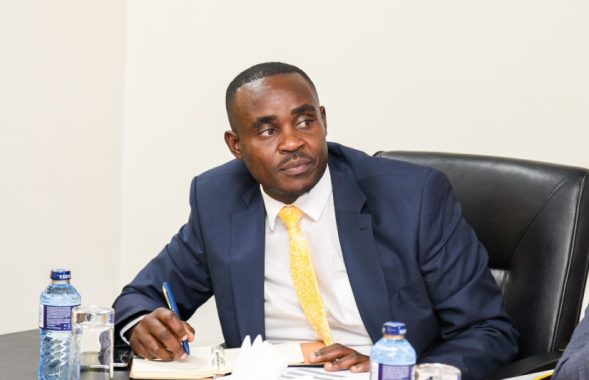Former Kakamega Senator Cleophas Malala has come out strongly to address the ongoing controversy surrounding the banning of ‘Echoes of War’, a dramatic piece performed by Butere Girls High School, asserting unequivocally that claims of distortion or unauthorised alterations to the script are not only false but deliberately misleading.
Speaking candidly during a live broadcast at a local TV station on Sunday, April 13, 2025, Malala, who both authored and directed the script, sought to clarify the sequence of events leading up to the disputed adjudication while defending the integrity of the cast and the teaching staff involved in the production.
“I wrote this script myself and made a firm commitment to the cast that, unlike last year, when the performance suffered due to repeated changes, this time I would hand them a complete script and make only the most minimal of adjustments,” he stated.
Malala emphasised that the script had not only been reviewed but also formally endorsed by a panel of nine adjudicators who had been duly appointed by the Ministry of Education, each of whom, he claims, praised the script for its artistic merit and thematic richness.
“We had nine adjudicators officially appointed, and every one of them gave this script a green light. They said it was a brilliant piece of work. At what point did the content suddenly become problematic?” he posed.
The disqualification of ‘Echoes of War’ at the regional level has ignited public concern, with many accusing authorities of censorship and political interference.
Malala revealed that adjudication sheets, which detail the judges’ assessments, are currently in the possession of the court – a move that suggests impending legal proceedings or a formal challenge to the decision.
“The script, exactly as it was performed at regionals, had already been cleared. These adjudication records are now with the court, which should speak volumes about our confidence in the process we followed,” he said.
School administration
Turning his focus to the school administration, Malala criticised the principal of Butere Girls High School, insisting that she had distanced herself from the production and was unfairly shifting blame to a subordinate drama teacher whose role in the matter was purely administrative.
“The principal, in fact, watched the play for the very first time at the regional level. Her attempt to attribute blame to a drama teacher, who merely fulfilled an administrative role, is disingenuous and entirely unacceptable,” he noted.

Malala further lamented that the principal’s actions were being orchestrated by external forces, suggesting that her imminent retirement might be prompting an overly cautious approach in an effort to preserve her professional legacy.
“She is retiring in two months and appears to be more concerned with safeguarding her reputation than standing by the truth. Let us not pretend this is an independent stance – she is clearly acting on instructions from above,” he declared.
Reinforcing his position, Malala reiterated that he alone bears responsibility for the play’s content and direction, urging critics and officials alike to engage him directly, rather than harassing the teachers and students involved in the production.
“If there are genuine concerns about the message or tone of the play, then they ought to address those concerns to me. The writer of Echoes of War is Cleophas Malala. The director of Echoes of War is also Cleophas Malala. Leave the innocent educators out of it,” he asserted.
Distortions?
However, Malala hinted that the script may have witnessed a few changes after its original composition but came out firmly defending the view that no one should raise alarm, even if adjustments had been made.
In his words, a piece of art is subject to growth and refinement, and such evolution should not be treated as sabotage or distortion.
He argued that the creative process, by its very nature, allows for development and transformation, particularly when the goal is to perfect a performance.
“Art is never static,” he implied, suggesting that slight changes – whether in delivery, phrasing, or scene construction – are a natural part of staging a theatrical work.
Malala further justified his hands-on involvement by pointing to the school’s underwhelming performance in the previous year’s drama festivals.
He insisted that it was precisely because Butere Girls had not excelled last year that he had made a personal commitment to provide a complete and finalised script with minimal changes, ensuring the students had clarity, direction, and a strong chance of success at the national level.
“The play had to reflect consistency and vision,” he said, adding that while minor refinements may have occurred, they were not enough to warrant claims of distortion or foul play.
In his view, what mattered most was that the script was initially vetted, approved, and praised by qualified adjudicators – and any later developments fell within the bounds of creative expression, not disqualification.